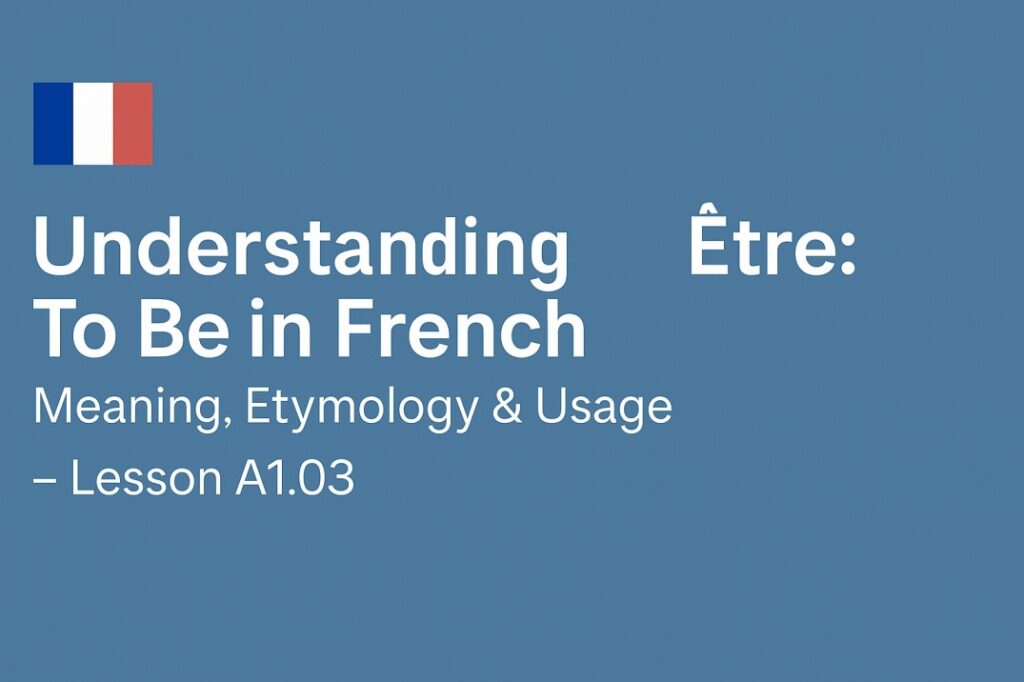🔰 Introduction
In any language, one verb stands above all others in importance: the verb “to be.” In French, that verb is être. Whether you’re introducing yourself, describing someone, or simply saying where you are — être is essential. the verb be in french
This lesson will take you through the basics and beauty of être, explain where it comes from, how to use it, how to ask questions with it, and even why it sometimes includes a mysterious little accent: the circumflex (ˆ).
By the end of this lesson, you’ll be ready to understand and use être confidently in real-life conversations — just like the one we’ll see between a tourist and a waitress in Brussels.
1. What does être mean?
The verb être means “to be.” It is one of the most commonly used and most irregular verbs in the French language.
We use être for:
Identity: I am a student → Je suis étudiant.
Nationality: You are French → Tu es français.
Emotion or state: She is happy → Elle est contente.
Location (sometimes): We are at school → Nous sommes à l’école.
2. Origins and Etymology
The word être has deep historical roots:
Derived from Latin: from esse (to be, exist) and stare (to stand).
These two roots fused over centuries into the modern French forms of être.
This is why être has such irregular conjugations — they carry traces of different Latin verb families.
This verb is also connected to many international words like: the verb be in french
Essence and essential in English
Essere in Italian
Ser and estar in Spanish
Ensuite, répondez aux questions suivantes.
1. Qu’est-ce que la serveuse apporte ?
2. Quelle est la nationalité de Luigi ?
3. Que dit Luigi à propos du français de la serveuse ?
7. Tu ______ étudiant ?
Nous ______ très contents.
4. D’où vient la serveuse ?
5. Complétez : « Et vous, vous êtes ______ ? »
6. Complétez avec le verbe être :

